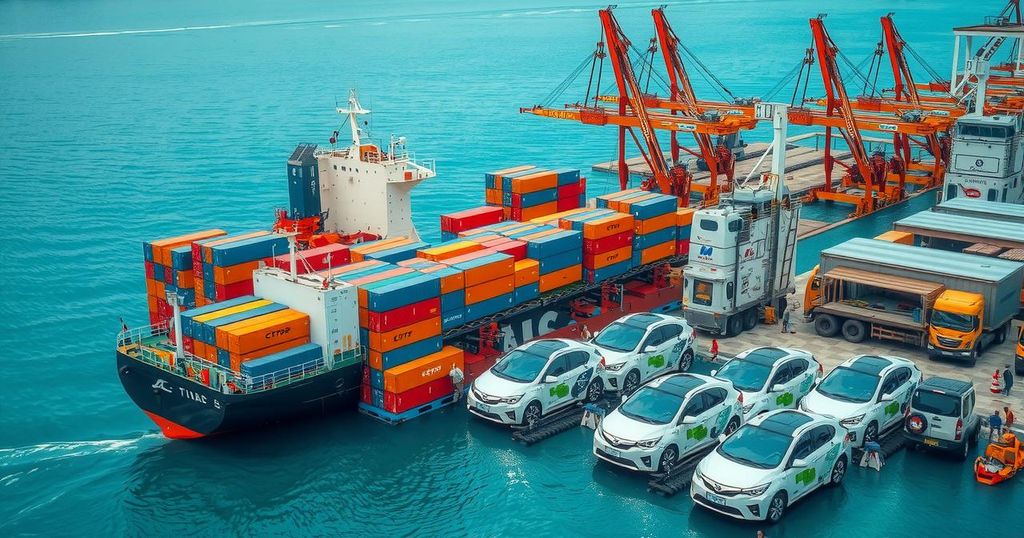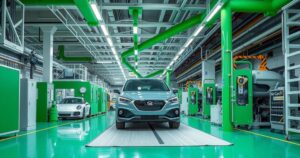BYD’s Brazil Expansion Faces Challenges Amid Tariff Requests from Competitors

BYD is facing challenges in expanding its operations in Brazil due to rising tariff requests from local automakers. A shipment of over 7,000 vehicles is on its way to Brazil, but competition and regulatory barriers may hinder BYD’s success in the market.
BYD, the largest electric vehicle manufacturer in China, is facing significant challenges in its quest to expand operations in Brazil. Demand from rival automakers for increased tariffs is growing, aiming to curb BYD’s access to the Brazilian market and prevent them from amassing large inventories. This push for higher tariffs is a direct response to BYD’s aggressive strategy to dominate Brazil’s EV sector.
In late April, a car carrier transported over 7,000 BYD vehicles from Jiangsu province in China. Reports from Chinese state media indicated that the shipment was expected to arrive at the Port of Itajai, located in Brazil’s southern Santa Catarina state, within approximately one month. This shipment illustrates BYD’s confidence in the Brazilian market; however, the impending tariffs create uncertainty around its distribution.
Local Brazilian automakers have expressed concerns about BYD’s growing presence, fearing that an influx of cheap Chinese EVs might undermine their market position. In light of this, they have urged the government to take immediate action to raise tariffs on imported vehicles. This advocacy coincides with Brazil’s ongoing efforts to increase domestic manufacturing capabilities, particularly in the electric vehicle sector.
As the Brazilian government continues to consider the implications of tariffs on foreign manufacturers, the outcome remains uncertain. For BYD, navigating this environment is crucial to its plans for expansion in a burgeoning market for electric vehicles. The situation emphasizes the broader international tensions affecting trade and investment in the automotive sector, especially concerning electric vehicles in a competitive landscape.
In conclusion, BYD’s expansion ambitions in Brazil face considerable hurdles due to rising tariffs proposed by local competitors. The company must now respond to these challenges while trying to solidify its foothold in Brazil’s promising electric vehicle market. Without swift actions to address concerns, the potential for BYD might be stymied by regulatory barriers and competitive pressures from traditional automakers.
In summary, BYD’s ambition to expand in Brazil is significantly challenged by rising calls from local automakers for increased tariffs. As the company navigates these hurdles, the future of its operations in Brazilian markets hangs in the balance, emphasizing the complex interplay between domestic industry interests and international competitors in the EV sector.
Original Source: asia.nikkei.com







